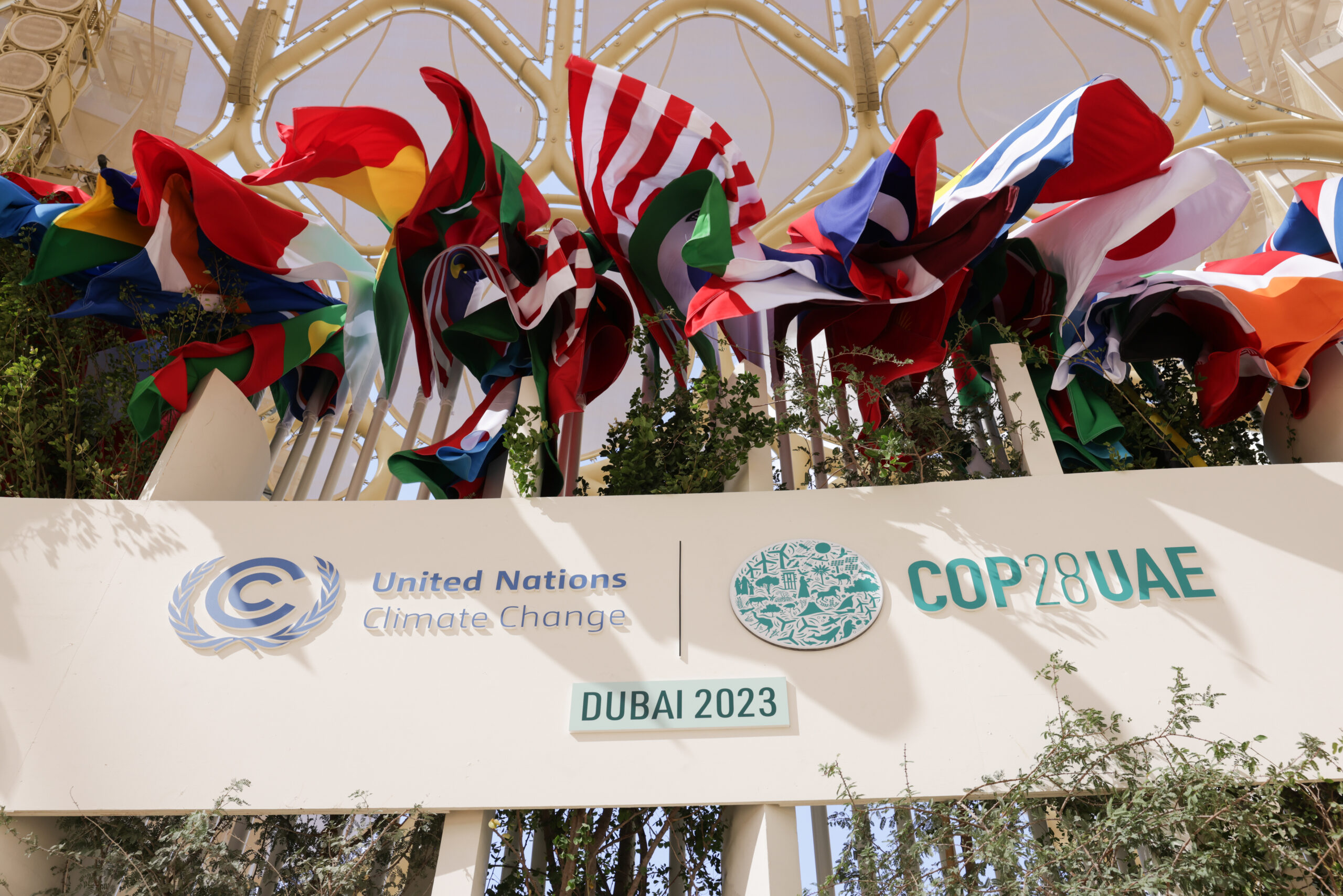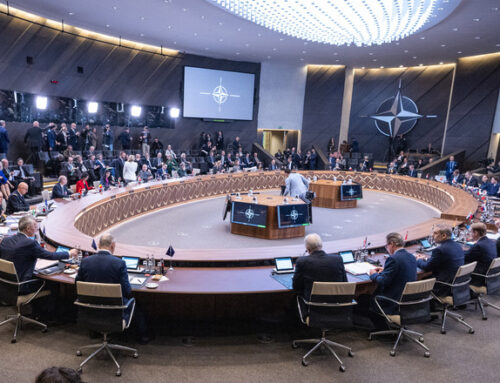November 30
Autor foto: Domena publiczna

The UN climate summit in Dubai: Global warming and decarbonisation among controversies
4 grudnia, 2023


November 30
Autor foto: Domena publiczna
The UN climate summit in Dubai: Global warming and decarbonisation among controversies
Autor: Karolina Olszowy
Opublikowano: 4 grudnia, 2023
On 30 November, the two-week COP28 climate summit began in Dubai. Leaders and diplomats from almost 200 countries have gathered to discuss preventing global warming, ways to divert from fossil fuels and financing their efforts. However, the conference has been accompanied by controversies, such as the choice of host as the fifth-largest oil producer and the appointment of Sultan Al-Jaber, a top fossil fuel executive, as head of the conference. All of this takes place in the hottest year on record. On top of that, geopolitical tensions are causing the inability to choose next year’s host.
COP stands for Conference of the Parties, and parties refer to the 197 countries that signed the United Nations Framework Convention on Climate Change in 1992. Since the first conference in Berlin in 1995, country leaders, diplomats, and experts have met annually to discuss global warming. One of the most critical summits took place in 2015 in Paris, when more than 190 states signed the Paris Agreement, which aims to reduce global temperature rise by 2 degrees Celsius, preferably 1.5. One year ago, in Sharm Al-Sheikh, Egypt, parties agreed to set up a fund to help poorer countries deal with the effects of climate disasters, but concrete results are not expected until this year.
One of the main issues addressed in Dubai is the Global Stocktake, which aims to align data measures on how much emissions countries are actually reducing. Participants are also expected to adopt a document with information on how their progress in reducing greenhouse gas emissions compares to the requirements of the Paris Agreement. To be determined is the question of which countries will actually participate in funding of the Loss and Damage Fund, aimed at compensating for the climate impacts suffered by countries in the Global South. The USA has tentatively pledged to contribute several million dollars, and the EU has promised a significant financial contribution. However, those still need more specific promises missing concrete action plans. An agreement among the countries participating in COP28 is required to determine the final shape of the fund.
Moreover, the UAE also hosts a methane summit during COP28. The rationale for this is that methane has 80 times the warming properties of CO2. Thus, reducing methane emissions should be the fastest way to limit the rise in global temperature.
Controversy over COP28
At least a few controversies surround this year’s summit, and they have swept the world before the conference even started. Firstly, COP28 is taking place in the United Arab Emirates, supported by the Asia-Pacific region, which was supposed to choose the host among its members. However, what raises eyebrows is the irony that the climate summit is organised in a country that owes its wealth to oil. Moreover, Sultan Al-Jaber, the CEO of the Abu Dhabi National Oil Company, was chosen to lead the event. When his appointment was announced earlier this year, more than 130 lawmakers from Europe and the US wrote to the UN, calling for a change in the decision. Moreover, the BBC recently published documents suggesting the UAE planned to use the summit to strike oil and gas deals with at least 15 countries[i].
The second major issue is the failure to implement the climate agenda. According to the Paris Agreement, countries were supposed to limit global warming by about 1.5 degrees Celsius; instead, a record was already broken when temperatures on November 17th exceeded 2C above pre-industrial averages. Also notable is the absence of two key leaders, Joe Biden and Xi Jinping, which may indicate that they do not expect any breakthroughs at the summit. Instead of the US president, US Vice President Kamala Harris addressed the event on Saturday, promising that „the United States of America will once again be a global leader in tackling the climate crisis”.[ii] Polish president Andrzej Duda also addressed the meeting on Saturday. He emphasised the future of nuclear energy and that it is indispensable to achieve climate policy goals. He also announced that „one of the priorities of the Polish presidency of the EU in the first half of 2025 will be a fair energy transition with a special focus on nuclear energy”[iii].
What about next year’s COP29?
Next year’s COP29 should take place in one of the Eastern European countries. However, geopolitical tensions have led to an impasse in determining the summit’s host. A decision has to be made by consensus at the end of COP28 at the latest, but this does not look likely to happen. Russia is blocking all EU countries, accusing them of being biased, but in practice, this is the result of EU countries blocking Russia over the war in Ukraine. Thus, despite significant support among European countries, Bulgaria’s bid will most likely be rejected. Armenia and Azerbaijan are also among the other countries that have put forward their candidature to host the climate summit, but being technically at war, they would block each other. The lack of a host is a severe problem, as it usually takes the lead in conducting climate negotiations ahead of the conference, and the targets for next year is immense. Countries at COP 29 will have to decide on a new financial target for climate financing in developing countries from 2025 onwards and present new climate commitments, including targets for reducing emissions by 2035.
With no breakthrough, three possible solutions can occur. Eastern Europe could swap with another group or a specific country, as happened in 2019 when Spain replaced Chile. Australia has already declared to be willing to take over the presidency in 2024. The countries could also try to agree to hold the pre-climate meetings in one country, the actual conference would take place in another, and a third country would take over the presidency. However, the group’s parties seem too conflicted for such an agreement. Finally, there is also an option to hold the summit in Bonn, the seat of the UN climate body. Germany, however, does not confirm such a possibility. If the parties fail to choose a COP29 host, the UAE will face an extended presidency, which would be highly controversial considering already significant criticism.
Conclusion
Despite its controversies, COP28 is a vital climate summit where significant agreements are negotiated on reducing greenhouse gas emissions, moving away from fossil fuels and decarbonisation, and creating an aid fund for countries in the Global South. So far, a commitment to triple the world’s renewable energy production by 2030 has already been signed by 118 countries. On Saturday, more than 20 countries signed a declaration to triple the power produced by nuclear power plants by 2050, with Poland among the signatories. Although geopolitical tensions make new agreements harder to reach, accelerating global warming will require parties to continue regular meetings and at least have minimal consultancy on climate issues.
Author: Karolina Olszowy, external contributor
[i] “UAE planned to use COP28 climate talks to make oil deals”, BBC News, November 27, 2023, https://www.bbc.com/news/science-environment-67508331
[ii] “COP28: US touts climate leadership as oil and gas output hits record”, Reuters, December 2, 2023, https://www.reuters.com/world/cop28-us-touts-climate-leadership-oil-gas-output-hits-record-2023-12-02/
[iii] “Andrzej Duda na COP28: Atom jest przyszłością. Potrzebne są kolejne zdecydowane kroki”, Rzeczpospolita, December 2, 2023, https://www.rp.pl/polityka/art39506991-andrzej-duda-na-cop28-atom-jest-przyszloscia-potrzebne-sa-kolejne-zdecydowane-kroki






